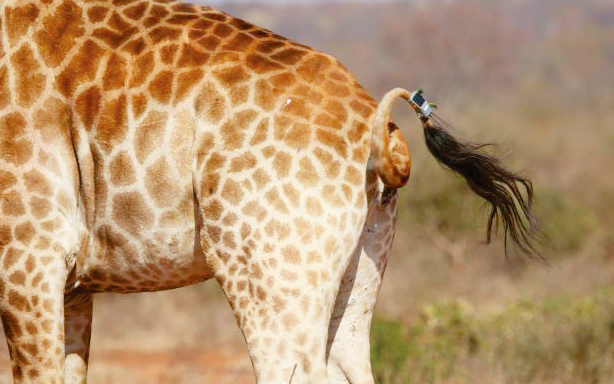
THE Namibia-based Giraffe Conservation Foundation was the recipient of the Conservation Tech Award by EarthRanger last Wednesday.
EarthRanger is a computer program of the Allen Institute for Artificial Intelligence, and the award was developed to catalyse innovation and development in conservation solutions. It recognises organisations using technology to protect endangered species, monitor ecological changes and animal behaviour, and promote peaceful human-wildlife coexistence.
“The Giraffe Conservation Foundation’s (GCF) work embodies what we are looking to recognise and encourage through this grant,” said Jes Lefcourt, director of EarthRanger.
“GCF is approaching big, continent-wide challenges that don’t have simple solutions, and is applying a host of technologies in creative ways, ranging from large-scale animal tracking to advanced artificial intelligence models for identifying individual animals.
“We hope that the grant aids in GCF’s work and that others will be inspired to join the effort to empower conservation through technology,” he said.
As a user of the EarthRanger software, GCF has used machine learning, rapid geospatial data management and visualisation to understand giraffes in unprecedented ways and advocate their protection.
For example, according to GCF director Stephanie Fennessy, the foundation created the Twiga Tracker initiative, which is the largest GPS satellite tracking study ever conducted on giraffes. With help from its partners, GCF has successfully collared more than 250 individual giraffes in 12 countries with solar-powered tracking devices to follow their migration patterns, observe their interactions with their environments, and aid in anti-poaching efforts.
GCF is also conducting repeated surveys of giraffe populations using pattern recognition and machine learning to compile a database of all known individual giraffes in key conservation landscapes, in addition to using genetics to reclassify giraffe taxonomy from one to four distinct species, a story which The Namibian covered in May.
Fennessy said that while the foundation hopes to inspire a passion to protect this species, which plays a vital role in maintaining balance in ecosystems, the giraffe is still challenged by habitat loss, human population growth, disease and poaching, which have consequently resulted in a third of the population being lost over the last 30 years.
“GCF is putting often-hyped technology to the test in real-world rugged field environments, pairing technology with local community knowledge, and helping researchers do less data-wrangling and more science,” said Tanya Birch, program manager at Google Earth Outreach and a member of the selection committee.
“With strong track records showing impact at conserving giraffe, the award can be a launching pad for novel applications of tech.”
The Conservation Tech Award consists of two N$225 000 prizes. GCF and the Lion Guardians in Kenya were the two winners. Applications were evaluated based on an assessment of innovativeness, potential for scalability, clarity of success metrics, clarity of next steps, and likelihood of having impact.
This year, the applicant pool included nearly 100 applications from organisations on six continents and 32 countries, all involved in vital conservation efforts around the world. Fenessey said that access to conservation technology continues to change the face of conservation. It has been shown to aid efforts even through the Covid-19 pandemic, allowing conservationists to do more with less and continue their work amid the significant challenges of decreased budgets and increased illegal activity such as trade and poaching.
GCF is the only organisation in the world that concentrates solely on the conservation and management of giraffe in the wild throughout Africa.
From their base in Windhoek, they currently are involved in giraffe conservation efforts in 16 African countries.
